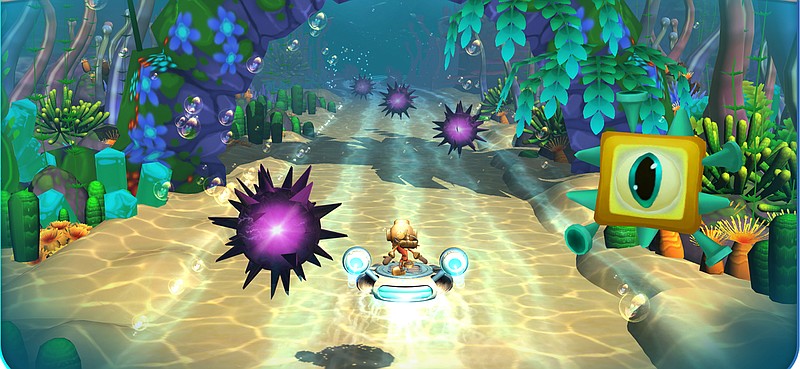In a pretty significant indicator that games are making inroads into everyday life, the Food and Drug Administration in 2020 allowed a video game to be marketed as a low-risk treatment for children ages 8 to 12 who have been diagnosed with attention-deficit hyperactivity disorder.
The FDA cleared "EndeavorRx" as a Class II medical device (a category that includes powered wheelchairs and some pregnancy kits) through a regulatory review process that is less rigorous than the one required for new medications.
The game by Akili Interactive could be evidence of things to come — including prescription-strength gaming — according to the 2021 Tech Trends Report by the Future Today Institute. Amy Webb, futurist and founder of the institute, made her annual presentation at SXSW on Tuesday, detailing her firm's insights into the near- and long-term future of media and technology industries, including news, health and the sciences.
An FDA-cleared game is just one indicator of how video games are taking over the media landscape, according to the Tech Trends Report. Video games are mentioned all over the report. For instance, it says to expect a platform bidding war for streaming rights to events like the League of Legends World Championships and "Fortnite" concerts, and that these events will soon rival TV as mainstream entertainment.
Akili Interactive formed in 2011 with the intent of creating games for clinical therapy. "EndeavorRx" is an on-the-rails, character-based racing game with bright colors, looking similar to a mascot-driven title like "Crash Bandicoot." In "EndeavorRx," designed for iPhones and iPads, children guide an avatar surfing through molten lava and an icy river, dodging fires and icebergs while grabbing flying objects. But its game mechanics are designed "for target activation of specific neural systems in the brain to treat diseases with associated cognitive dysfunction."
[As The Washington Post reported in June, doctors and nurses are able to prescribe the game by giving parents a code to download an app.]
The company was formed through a longtime friendship between two of its founders, Matt Omernick, who worked for 10 years at LucasArts, the former studio and game development arm for the "Star Wars" brand, and neuroscientist Adam Gazzaley, who worked out of the University of California, San Francisco, researching how cognitive abilities can be enhanced through video games.
Omernick said that when the two met about 15 years ago, they were fascinated with each other's works. Omernick was obsessed with how the brain works, while Gazzaley was curious about how games are created.
"He really understood the power of experiences, and that's where the neuroscience is blooming," Omernick said. "It's experiences that can change the physiology of the brain, good and bad. Experiences in your life rewire your brain, and games are one of the best vessels on Earth to deliver experiences."
The company, hoping to prove that games can rewire the nerves to positive effect, had to submit five studies of more than 600 children before approval. [As the Post reported in 2020, the firm began its pursuit of the FDA approval in 2013, submitting data from five studies. Four of the five were wholly or partly funded by Akili, according to the company. One study, a report in The Lancet Digital Health, said the lead author of that study was a paid consultant with stock options in the firm and three other authors were Akili employees. It's not rare for companies to pay for such research, and peer-reviewed journals require such relationships to be disclosed as potential conflicts of interest.
[As The Post reported in June 2020, the authors of the Lancet study warned that their results weren't sufficient to suggest that the game substitute for more established treatments for ADHD. Among the limitations of their study, they noted that they had excluded children taking ADHD medication or who had an additional "significant" psychiatric problem.]
The published studies found that the game can be used to "improve objectively measured inattention" in children with ADHD. Akili submitted to the FDA a "De Novo Classification Request," which is meant to provide risk-based classification for medical devices with no real precedence in the legal market.
In a statement in 2020, Jeffrey Shuren, director of the FDA's Center for Devices and Radiological Health, praised "EndeavorRx" as "an important example of the growing field of digital therapy and digital therapeutics," and said that the FDA is always looking for regulatory inroads for innovative therapeutic solutions.
Celia Storey added information to this report from a June 2020 Washington Post report.
